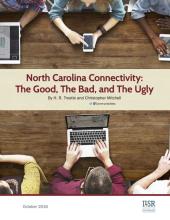Pinetops Threatened by Hurricane and NC Legislature - Community Broadband Bits Podcast 226

Pinetops, a town of about 1,300 outside Wilson, North Carolina, is suffering a double calamity as Hurricane Matthew has left floods and incredible damage in its wake. Less natural but no less frustrating is the unforced error by the North Carolina Legislature in effectively prohibiting municipal broadband networks.
This week, we have a doubleheader interview with Will Aycock, the General Manager of Wilson's fiber-optic Greenlight service, and Suzanne Coker Craig, a local business owner and town council member. They talk discuss the devastation from the hurricane and the threat from the town's only broadband provider being forced to leave town by an ill-conceived state statute.
We often talk about how important modern Internet networks are, but the Pinetops reaction to this storm is a stirring reminder of how true that is. Whether it was as the hurricane approached, hit, or left town, local leadership had to continue fighting to retain Wilson's Internet service because it is that important to them.
Fortunately, Wilson has announced that it will not cut off Pinetops as expected. Instead, it will offer free service, which is not prohibited by current law. Wilson is generously giving the state six months to fix the law so Pinetops is not economically harmed by losing high quality Internet access.
This show is 28 minutes long and can be played on this page or via Apple Podcasts or the tool of your choice using this feed.
Transcript below.
We want your feedback and suggestions for the show-please e-mail us or leave a comment below.
Listen to other episodes here or view all episodes in our index. See other podcasts from the Institute for Local Self-Reliance here.
Thanks to mojo monkeys for the music, licensed using Creative Commons. The song is "Bodacious."






